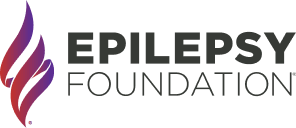Preparing for Pregnancy
In the United States, epilepsy affects nearly one million women of childbearing potential. Nevertheless, most women with epilepsy can and do have normal pregnancies.
- Some well-documented risks are associated with taking anti-seizure medication (ASM) while pregnant, but the answer usually is not to stop taking the medication.
- Seizures in the mother can also cause risks to mom and baby. For instance, what if you had a seizure and fell and injured yourself? A mother falling on her abdomen could injure the fetus. In addition, a generalized tonic clonic seizure may actually induce premature labor and a miscarriage.
- Women with epilepsy should follow the traditional rules for having a healthy pregnancy. People who have the most successful pregnancies are the people who are healthiest when they're not pregnant.
What should women with epilepsy who are trying to get pregnant do?
- Talk to your neurologist before you get pregnant so that you understand what the risks are.
- Get their seizures under control.
- Find the right medication in the right dose.
- Try to get on just one medication if possible.
- Take a vitamin supplement containing folic acid.
- Avoid smoking.
- Be close to normal weight levels.
- Eat a sensible and balanced diet.
Resources
- More information on pregnancy and epilepsy will be available soon. For additional resources, visit Epilepsy & Pregnancy Medical Consortium
Resources
Epilepsy Centers
Epilepsy centers provide you with a team of specialists to help you diagnose your epilepsy and explore treatment options.
Epilepsy Medication
Find in-depth information on anti-seizure medications so you know what to ask your doctor.
Epilepsy and Seizures 24/7 Helpline
Call our Epilepsy and Seizures 24/7 Helpline and talk with an epilepsy information specialist or submit a question online.
Tools & Resources
Get information, tips, and more to help you manage your epilepsy.


